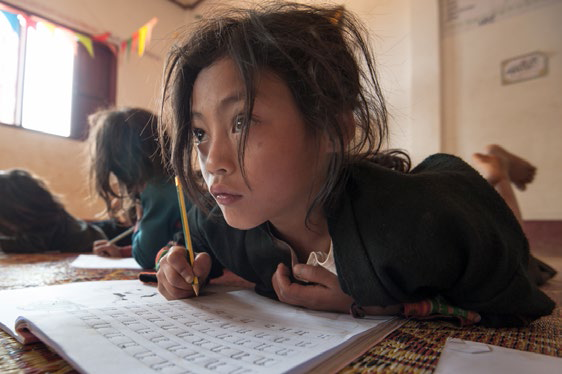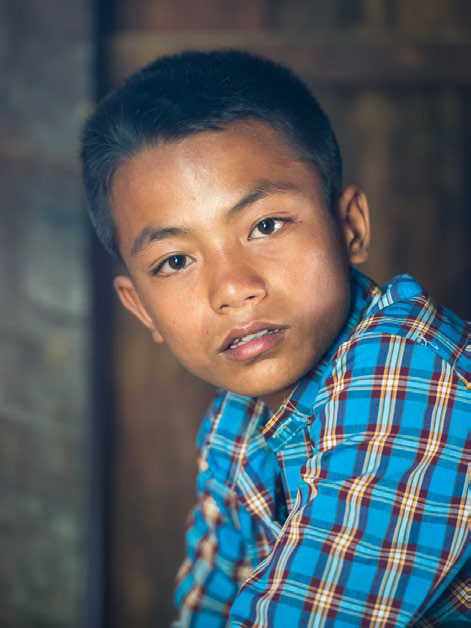(LAOS) Towards Quality Education in the Uplands: a story of transformation.

When World Renew started to work in the Muang Mai district in Phongsali province, the overall school attendance for school age children was 27% and girls’ attendance was only 15 %. In most of the Rshi villages where World Renew is working, girls did not attend school at all. From 2008 to 2013, World Renew worked together with these communities and local government to construct small, 2-room, semi-permanent schools in remote villages as well as bigger 5 and 6-room permanent schools in villages with more children. The district authorities appointed teachers to these schools and covered their salaries.
Through these cooperative efforts, the children’s attendance in these schools increased from 27% to 79% during the first phase of the project.

A young boy named Locher, who just finished 5th grade in primary school in Phialokao village, is one of the children who has benefitted of a new school. His teacher noticed his talent in math and sent him to a competition in Muang Mai. Locher won the competition and was later sent to the provincial math competition, which he won as well. Finally, with support for his travel costs from World Renew, he joined the national math competition in Vientiane and came home with the second prize. His success was rewarded with generous money prizes and a government scholarship to continue his studies in the city of Udomxay.
Locher’s parents said that he carried his school books everywhere and showed interest in learning early on. His parents gave him a chance to go to school full time even though it meant that they and Locher’s siblings had to work harder in the fields because of his absence.
Only the brightest students succeed.
While we were all excited about Locher’s success, we were also reminded that simply having access to school does not guarantee equal opportunities for all children. Currently, only the very brightest ethnic-minority children such as Locher are able to perform well in school because they arrive speaking their indigenous language and must learn the national language, Lao, in which school is taught.
Locher’s father told us that when he was a child, he went to the school in the same district. He spent seven years repeating the first two grades, and he still could not qualify to enter third grade based on his Lao language ability. Non-formal language education is given in the evening, in addition to the children’s school day. Locher’s sister dropped out of school during second grade because she was not able to keep up with the evening language classes.
Towards quality education.
Besides improving people’s access to education in remote areas of Laos,
World Renew is committed to improve the quality of education so that more ethnic minority children will have an opportunity to succeed and enjoy their studies. An ethnic community school readiness pilot project is starting this year in Locher’s village. The children’s indigenous tongue will be used for their education and Lao will be taught as second language. This will help the children adapt to school and set a good foundation for them to be better equipped to succeed academically when they begin grade 1.
Story and pictures by Ari Vitikainen
